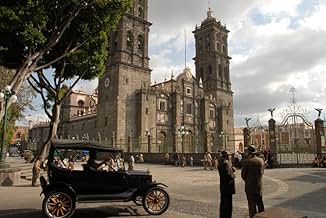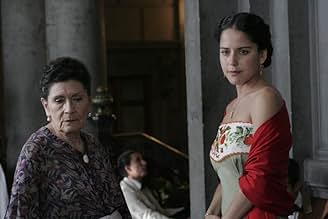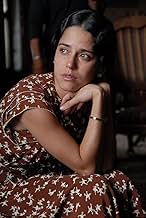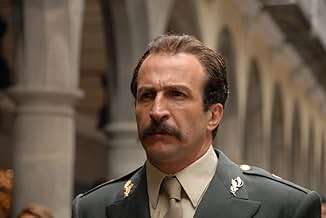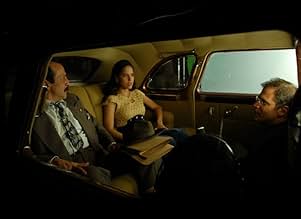Ajouter une intrigue dans votre langueSet in 1930's in Puebla, Mexico, a young woman finds herself in an arranged marriage to a prominent politician (Andres Ascencio). As his career progresses, she finds it more difficult to rem... Tout lireSet in 1930's in Puebla, Mexico, a young woman finds herself in an arranged marriage to a prominent politician (Andres Ascencio). As his career progresses, she finds it more difficult to remain a loyal, loving wife.Set in 1930's in Puebla, Mexico, a young woman finds herself in an arranged marriage to a prominent politician (Andres Ascencio). As his career progresses, she finds it more difficult to remain a loyal, loving wife.
- Prix
- 6 victoires et 3 nominations au total
Histoire
Le saviez-vous
- AnecdotesBased partially in the life of General Maximino Avila Camacho, brother of the Mexican president Manuel Avila Camacho. He was governor of Puebla from 1937 to 1941 and served as secretary of public works in his brother's Cabinet. He was infamous for being ruthless, arrogant and violent with his political enemies.
- GaffesWhen Carlos approaches Andres and Catalina at the restaurant, there are only 2 wine glasses on their table. Then, during the conversation he cheers and drinks from his own glass that appeared out of nowhere. When he leaves the table, there are only 2 glasses again.
- Citations
[first lines]
Catalina Guzman: [narrating] Many things happened in the country that year. Among other things, I met Andres at a cafe under the arches. Where else could it be? Everything happens in Puebla. From courtships to murders. As if no other place existed.
Andres Ascencio: They're a bunch of pricks.
Catalina Guzman: Who is?
Andres Ascencio: Just say yes. I can see in your eyes that you agree.
Catalina Guzman: Okay, but who are you talking about?
Andres Ascencio: All of them. Who else?
Catalina Guzman: [narrating again] Of course I agree. To me, "all of them" were the people from Puebla who acted as if they owned the city. Not us, children of a farmer who stopped milking cows because he'd learned to make cheese. Not him, Andres Ascencio, who became a general out of luck and every trick other than having been born in a military family.
First, two strong statements: I have not read the book and I'm from Puebla (the city where the story takes place).
I don't know how good of an adaptation this movie is, but as a cinematic product, "Arráncame la vida" works just fine. The leading actors, as well as the rest of the cast, offer solid performances. Giménez Cacho, as always, portrays Andrés Ascencio very nicely. He depicts a son of-a-bitch general, who -despite this characteristics or because of these- is highly enjoyable. The macho humor that this character uses, gives movement to the story. On top of that, we have Ana Claudia Talancón, the astonishing Catalina Guzmán. I'm not the biggest fan of her but I have to say her performance is flawless.
The references to the "poblano factor" (poblanez) gives a proper setting to the actions of the story, which mentions a lot of local moments and characters of the 30's and 40's. However, the universal value of the movie (and the novel, I guess) remains. Caciques, corruption and battles over power exist everywhere, not only in México but all over the world.
About directing and production, again, flawless. With a nearly 7 million dollar budget, "Arráncame la vida" is the most expensive movie in México to this date. However it has the quality of any Hollywood picture that surely would need way more than that to achiev the same results. The cinematography and the powerful music give the final touches to a production which, I'm sure, the audience from Puebla enjoyed and related to their own experiences and long time memories. Some nervous laughs could be heard in a packed premier at Puebla with members of the finest families of the region. You go guess what they thought of this portrait...
Despite of that, people would be satisfied with the story from what I could see and hear.
Summing up: I strongly recommend this picture. It is not the "biggest Mexican picture" but, no doubt, is a solid project with high production values. I've never read any of Mastretta's books but now I want to start.
- esquizzo
- 11 sept. 2008
- Lien permanent
Meilleurs choix
- How long is Tear This Heart Out?Propulsé par Alexa
Détails
Box-office
- Brut – à l'échelle mondiale
- 10 031 226 $ US
- Durée1 heure 47 minutes
- Couleur
- Mixage
- Rapport de forme
- 2.35 : 1
Contribuer à cette page


